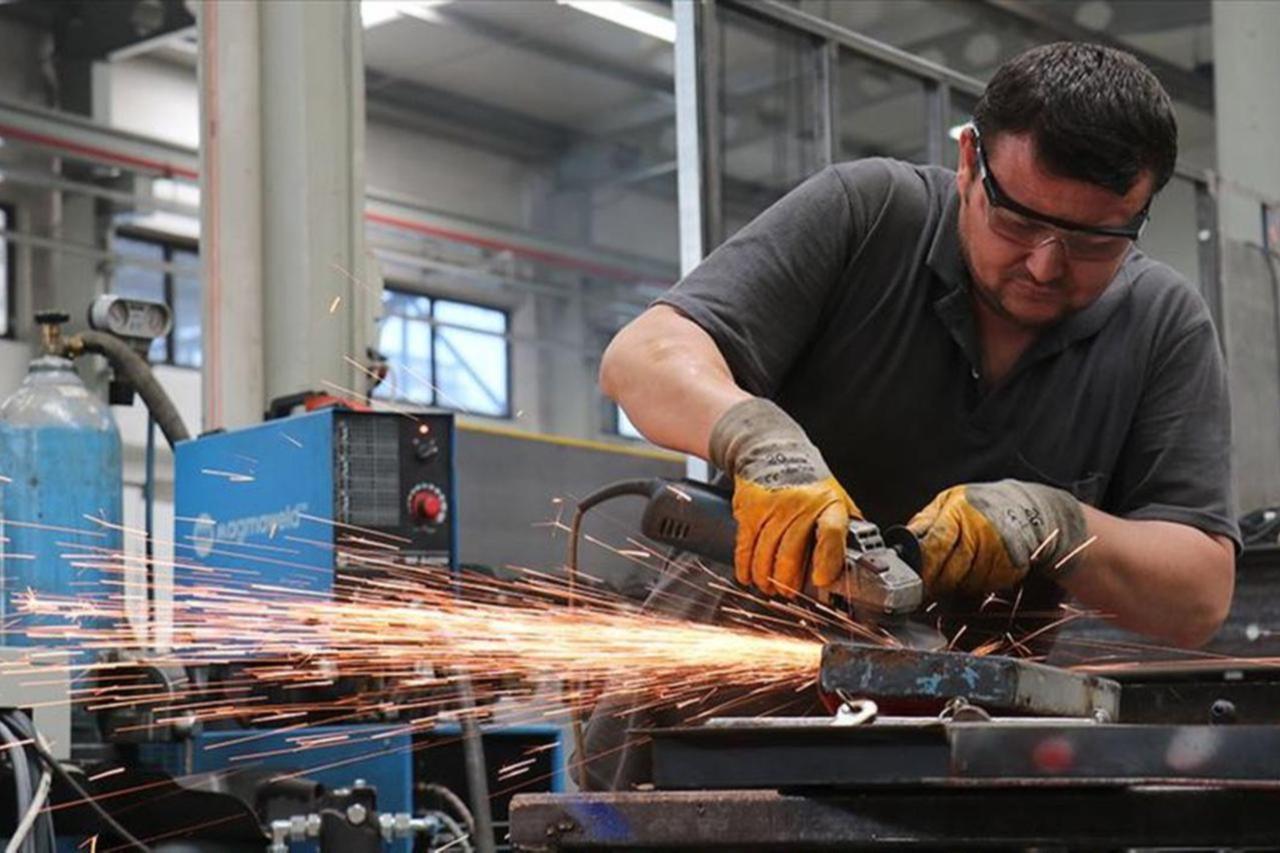
Türkiye’s industrial production capacity usage fell to its lowest level since the pandemic in August to 73.5% based on seasonally-adjusted data, extending its contraction for 3rd consecutive month, while business confidence in the real sector showed little overall change, according to official data released Friday.
The Central Bank of the Republic of Türkiye (CBRT) reported that the average factory operating rate, often referred to as the capacity utilization ratio, fell by 0.5 percentage points, while the unadjusted figure stood at 73.5%.
The central bank said the Real Sector Confidence Index, which measures sentiment among manufacturing firms, stood at 100.6 in August. It rose by 1.7 points on a seasonally adjusted basis but continued to hover around the neutral threshold of 100, with values above 100 indicating optimism and those below 100 reflecting pessimism.
The central bank noted that positive contributions came from assessments of past three-month orders, general business conditions, current inventories, and export order expectations.
However, evaluations concerning fixed investment spending, total orders, production plans, and employment expectations for the next three months acted in the opposite direction, limiting the index’s upward movement.

The services confidence index increased by 1.1% in August compared to the previous month, reaching 111.1. The improvement was largely driven by stronger expectations for future demand, which rose by 3.4% for the coming three months. However, companies reported that actual demand during the past quarter had eased slightly, declining by 0.2%, showing a gap between recent performance and forward-looking optimism.
The retail trade confidence index also posted a modest gain of 0.8%, climbing to 108.8. Despite this rise in sentiment, retailers indicated weaker activity in recent months, with sales volumes down by 0.5% and stock levels reduced by 4.3%. Even so, expectations for the next three months turned more positive, with anticipated sales volumes increasing by 6.3%, suggesting that businesses are more hopeful about a recovery in consumer demand.
In contrast, confidence in the construction sector fell sharply, as the index dropped 4% to 85.3. Firms reported a 1.6% decline in order books and a 6.2% decrease in employment expectations for the coming months, suggesting that construction companies anticipate weaker activity and are preparing to scale back their workforce accordingly.